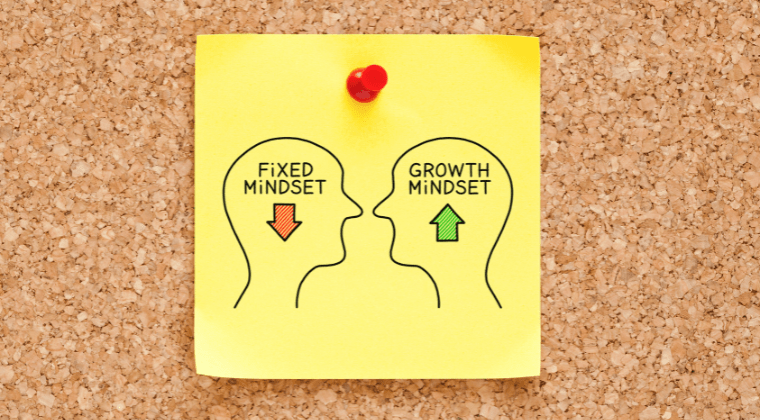Written By: Hillary Lee
Your interactions with others, whether they’re a kid or adult, impacts their mindset. They’re indicators of our happiness; how happy we are, how often we feel accomplished, and how often we’re happy. Fixed mindsets tend to lead to feelings of frustration, defensiveness, imposter syndrome, and overall unhappiness.
The bottom line – mindsets ultimately lead to the shaping of our self-identities.
So what can you do as an educator to ensure you’re setting kids up for success?
Let’s break down fixed and growth mindsets.
Fixed Mindset
“I am what I am”
A fixed mindset is the idea that your abilities are limited no matter how hard you try; when you believe ‘it’s just how you are,’ and ‘you’ve never been good at that.’
Kids are given these fixed labels that define themselves and their identities, and end up hindering their growth. They’re labels that don’t leave room for inspiration and improvement.
- Clumsy
- Naturally good at math
- Lazy
- Smart
What are you supposed to do with these?
When these labels are given to us, we begin to internalize and identify with them. Our brains start to look for evidence to reinforce these ideas, and these labels train your brain to believe that it’s true – that you can’t improve!
Growth Mindset
“I am always growing”
In contrast, a growth mindset is the true, authentic feeling that you are always capable of growing and developing.
It is the idea of being in control of your accomplishments and failures, through your own efforts and actions towards getting better.
In this study, The Effect of Praise on Mindset, by Carol Dweck, she demonstrates the power of instilling a growth mindset in kids. Kids were given a puzzle to complete, then praised in one of two ways. Kids who were given praise using growth mindset oriented language were significantly more interested and eager to take on difficult tasks, compared to kids who were given praise using fixed mindset oriented language.
What can I do?
Instilling a growth mindset in kids can be as simple as changing WHAT you praise and HOW you say it. Small actions make a big difference long term!
If you’d like to dive deeper and learn more about fixed and growth mindsets, check out this free course, Growth Mindset in the Classroom.


